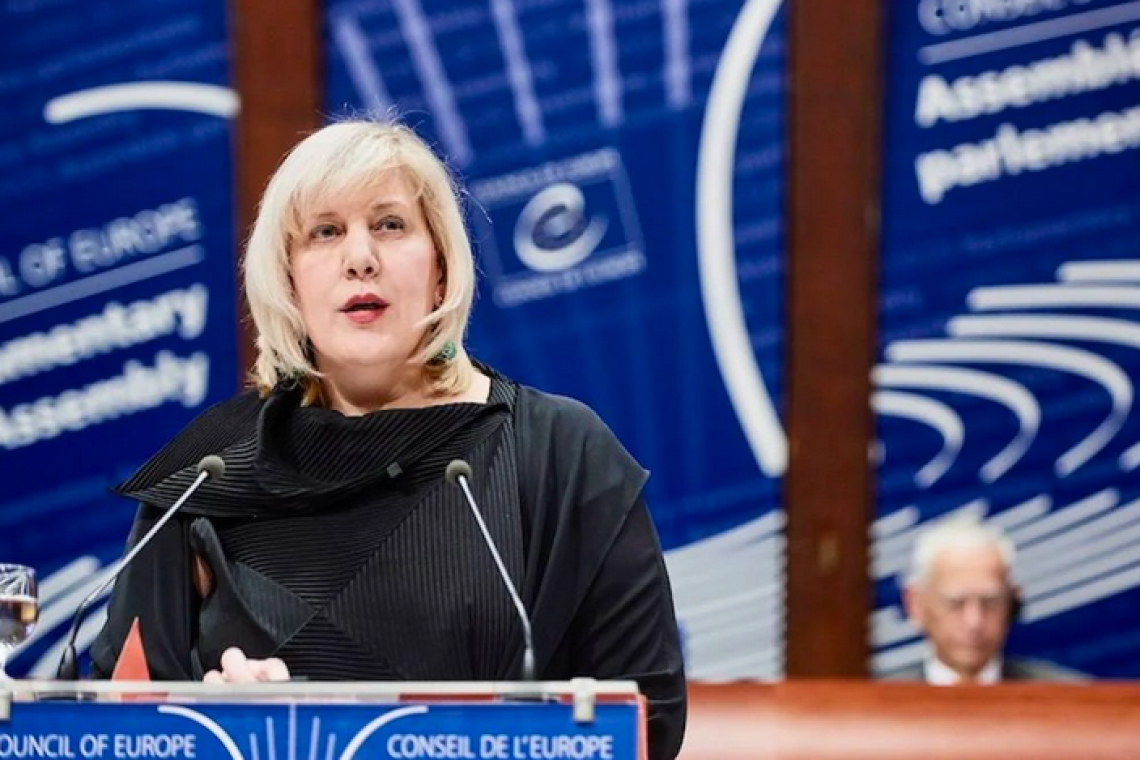The Council of Europe's Human Rights Commissioner, Dunja Mijatović, expressed grave concerns over the suppression of press and freedom of expression in Turkey, emphasizing the urgent need for Turkish authorities to address these issues. This call for action was outlined in a memorandum released on March 5.
The memorandum highlighted the systematic pressure exerted on journalists and human rights defenders in Turkey. It pointed to the critical state of freedom of expression and the media, noting a decade-long concern for the Council of Europe's human rights commissioners. The report underscored an intolerant stance towards critical voices by Turkish authorities, continuing judicial pressure, and systematic suppression against journalists, human rights advocates, and civil society.
Particular worry was expressed over internet censorship in Turkey, where both administrative and judicial bodies continue to impose restrictions. These practices are seen as depriving the Turkish public of oppositional or critical information. After the earthquakes in Maraş on Feb. 6, 2023, authorities restricted internet access and blocked several social media platforms. However, the Constitutional Court's cancellation of some articles in the Internet Law (Law No. 5651) was welcomed.
The memorandum also criticized the Radio and Television Supreme Council (RTÜK) for continuing to hinder critical journalism. Reference was made to reports and news stories about violations of internet freedom prepared by NGOs.
A new censorship law, enacted in October 2022, was highlighted for its potential deterrent effect on press freedom. The European Council Parliamentary Assembly (PACE) and the Venice Commission criticized the provision of "publicly spreading misleading information" in Article 217/A of the Turkish Penal Code. The Constitutional Court's refusal to annul this provision was met with disappointment, and dissenting opinions by the Court's President Zühtü Arslan were noted.
MLSA data also referenced
The Media and Law Studies Association (MLSA)'s reports on media freedom and the suppression of journalists in Turkey were also referenced. These reports reveal that about 90% of the Turkish media is under government control, with increasing pressure on critical media, arbitrary arrests of journalists, and harassment. The reports also highlight ongoing pressure on Kurdish journalists and the significant rise in investigations and trials against those exercising freedom of expression.
The security and safety of journalists in Turkey were addressed, citing international media's view of Turkey as an unsafe country for journalists. Threats, judicial pressure, physical attacks, and unsolved crimes were noted. The Platform for the Protection of Journalism and Safety of Journalists' 2023 Annual Report revealed Turkey as having the highest number of detained journalists in Europe as of Feb. 4, 2024, with 19 journalists in custody. MLSA's report "Journalism in Turkey: I Do Not Feel Safe" was referenced, emphasizing the high perception of insecurity among journalists.
The report also drew attention to threats and attacks against female journalists in Turkey. It highlighted the worrying situation of journalists seeking asylum in other countries due to pressure in Turkey. Authorities have been intimidating exiled journalists, denying them consulate services, and impeding their work through red notices and smear campaigns.
In its conclusion, the memorandum outlined the dire situation of press and freedom of expression in Turkey. It stressed the need for Turkish authorities to urgently act and adhere to the recommendations made by the Commissioner and her predecessors. The report called for constructive engagement with civil society, review and revision of restrictive laws, respect for the Constitutional Court and European Court of Human Rights' decisions, and ensuring the judiciary's independence and impartiality for meaningful change.
Additionally, the report touched on judicial, administrative pressures, threats, and cases against human rights defenders and civil society organizations. It emphasized that the targeting of these groups by the judiciary is a deliberate attempt to silence human rights defenders, a matter of ongoing concern.



